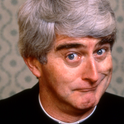It was WG Sebald who observed that Germans, in their art and literature, took a very long time to come to terms with the second world war. It took them almost 40 years to make Das Boot and 60 years to produce Downfall, neither of which tackled the big subject, the Holocaust. The Holocaust, of course, gave the conflict such moral probity that there has been little anti-war work from the Allied side (though Catch 22 tried). Nothing to rival The Good Soldier Schweik, All Quiet on the Western Front, Journey's End, Mash or Apocalypse Now. You could argue, then, that a critical television drama which emerges just five years after the second Gulf war and is financed by the perpetrators, the Americans, is evidence of a more healthy society.
The series is Generation Kill and it comes from David Simon and HBO, begetters of The Wire. Generation Kill transmitted in Britain on the cable channel FX during February and March and was made by one of our own independent producers, George Faber's Company Pictures. Set over seven hour-long episodes, without commercial breaks, it follows a motorised unit of marines on their picaresque journey from the Kuwaiti border to Baghdad in 2003. In order to achieve a cinéma vérité quality it is made without the monosodium glutamate of a music track—just dialogue and whatever songs the soldiers happen to sing. The series is based on a book of the same name by Evan Wright, a Rolling Stone reporter who travelled with the US army during the war in 2003. Wright had a hand in the screenplay, and a Rolling Stone reporter is one of the characters. But art, here, doesn't merely imitate nature. One of the sergeants, Rudy Reyes—a camp, self-parodying body builder—is a real person playing himself. Wright met him in the platoon and, no doubt recognising his flamboyance, persuaded him back into khaki.

All the important themes of the war emerge in Generation Kill. The careless killing of civilians increasingly alienates the Iraqi population, who are not to be bought off with ration packs: "Fuck it—do you think giving them some rice and a chocolate bar will fix things?" The suicide bombings begin, leading to innocent motorists being shot by nervous soldiers: "We're fast becoming an army of occupation." The equipment is defective because Donald Rumsfeld thought he would wage war on the cheap. When they reach Baghdad, there's no reconstruction plan for the same reason. Then the car bombing starts in earnest: "This is not good, not good at all." The Americans kill some amateur sharpshooters discovering them to be recently arrived students from Syria; their papers declaring them to be "jihadists": "He wasn't a jihadist till we came to Iraq." The population of Baghdad beg the Americans to patrol at night to prevent the anarchy and violence but they are ordered not to, not having the resources to do the job properly. The errors of the campaign are well-documented and provide a powerful political and social spine for the drama.
Armed with video cameras, several of the soldiers become their own war reporters. One of them edits a "holiday video" together containing what television reality shows now refer to as their "best bits." At the end of the final episode he shows it to his buddies on his laptop, as they rest up in a Baghdad warehouse. They all gather round and, to begin with, cheer as each house explodes and civilian cars get shot up. Slowly, all but Cpl Trombley drift away, probably bored by the monotony of the images. Or is it that they are disenchanted by their handiwork?
Generation Kill was critically well received in the US but rated poorly on HBO. It is probably not a drama that would have been financed in Britain because our television fiction, to pay for itself, has to appeal to a wide audience. But it's an important programme that should have been made. If you didn't catch up with it on FX then judge for yourself on DVD, or when Channel 4 transmits it this autumn.











